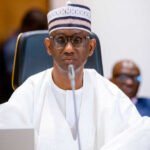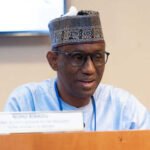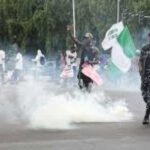Presidential candidate of the Labour Party, Peter Obi, has reiterated his plans for Nigeria if he is elected president.
The former governor of Anambra State highlighted his vision for policy change and institutional reforms in the country during his presentation at Chatham House on 16 January.
Obi condemned successive governments’ underinvestment in health and education to the detriment of the citizens.
He noted that the 2023 annual budget, like previous budgets, did not prioritise health and education to boost the human development index of the country.
Inadequate funding is one out of the many problems bedeiviling Nigeria’s health sector, as many of the hospitals in the country are just consulting rooms because they are lacking in everything.
Also, Nigeria is faced with a plethora of challenges in its educational sector, which ranges from poor funding to lack of infrastructure in schools, politicisation of the sector, lack of teaching aids in classrooms, unstable curriculum, strike actions; and the list goes on.
There is also the problem of out-of-school children in the country as the number seems to rise as the years go by.
Going by the manifesto of the Labour Party candidate, he had stated that his government would approach the revamping of the education system by introducing private sector participation in education funding.
In his presentation at Chatham House, which was monitored by Development Diaries, Obi said, ‘In line with this commitment to transform our educational sector, we will prioritise the funding of this critical sector.
‘Our tertiary institutions will be remodelled to serve as hubs or centres for research, development, and commercialisation of ideas for the quick industrialisation of Nigeria’.
Nigeria is grappling with unstable power supply, which is evidence of the ineffectiveness of governments. The privatisation of the sector did not in any way improve the situation also, even with government subsidies for some users.
Highlighting the country’s power problems, Obi said, ‘I’m going to declare war on power and I will solve it. Anybody who stands in the way, so be it’.
Obi, while talking about corruption in governance, said reducing the cost of governance in Nigeria is an effective way of fighting institutional corruption.
Nigeria’s economy is declining by the day; with global commodity shocks, a depreciating currency, trade restrictions, and monetisation of the deficit, surging inflation pushing millions of Nigerians into poverty.
On the economy, Obi said, if elected, his administration would create a suitable platform to attract foreign investors into the country.
He also said he will shift emphasis from consumption to production by running a production-centered economy that is driven by an agrarian revolution and export-oriented industrialisation.
On the issue of insecurity and ethnic tensions, he said his government would apply the carrot-and-stick method, adding that they will dialogue with those who are available for dialogue and will deal with those who are not interested.
‘The growing insecurity in Nigeria is not because the enemy is formidable, it is rather because of lack of focused leadership, ineffective security governance structure and poor coordination from the centre’, he said.
Before President Muhammadu Buhari assumed office in 2015, he promised to address the country’s insecurity and economic problems if elected.
Unfortunately, the story is a different one as Buhari is about to complete his eight-year tenure with Nigeria still grappling with security challenges.
It would not be unusual to make campaign promises, even promises that seem too good to be true. What matters is putting those promises into action if elected.
Nigerians should therefore hold their pen and paper and keep jotting down campaign promises made by political candidates this season in order to hold whoever is elected to account when the time comes.







